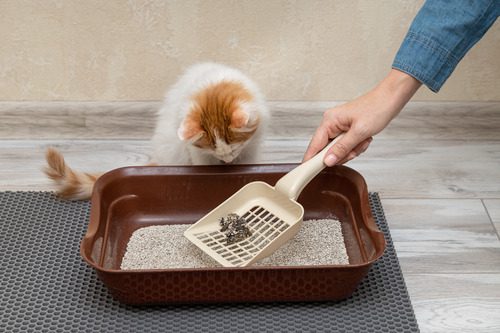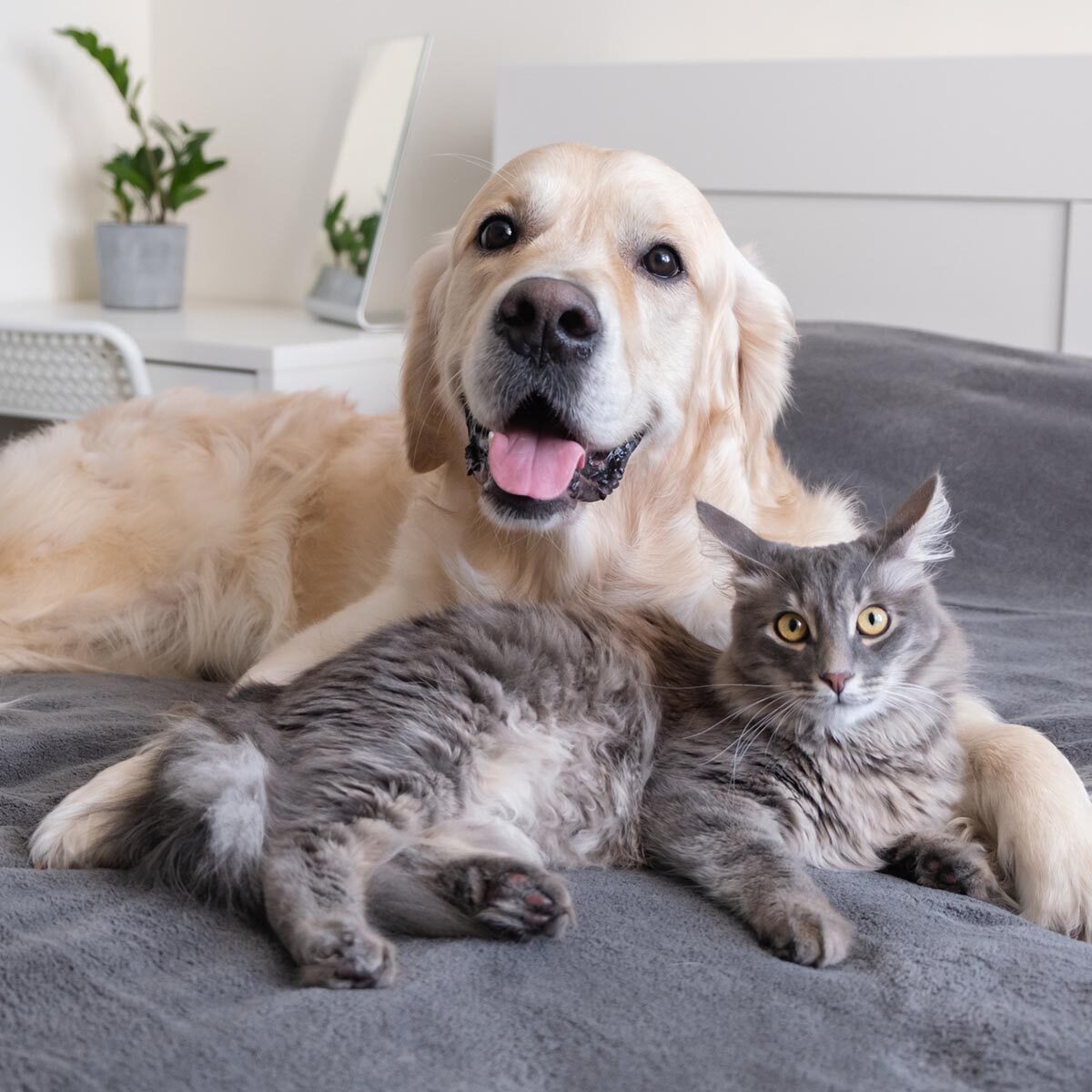Why Is My Cat Eating Litter?
You go to scoop your cat’s litter box as usual, only to notice something odd—your cat seems to be eating the litter. It’s a moment that sparks both confusion and worry. Why would a cat do that? At Auburndale Veterinary Clinic, we understand how this unexpected behavior can catch pet owners off guard, leaving them wondering if it’s harmless curiosity or a sign of something more serious. If your cat has been snacking on litter, it’s time to look deeper into the possible causes and what it means for their health. Let’s discuss the potential reasons behind this behavior and how you can take steps to protect your feline friend. If your cat is exhibiting any unusual behavior, call Auburndale Veterinary Clinic at (863) 967-5854 to schedule an appointment.

What Might Cause Litter-Eating in Cats?
Cats may eat litter for various reasons, ranging from medical conditions to behavioral issues. Identifying the root cause is essential to addressing the problem effectively. Below are some common reasons cats might eat litter.
Medical Conditions That May Cause Litter-Eating
Certain medical conditions can lead to unusual cravings or pica, a condition where animals eat non-food items.
- Anemia: If your cat is eating litter, especially clay-based litter, it might signal anemia. Anemia can cause a deficiency in essential nutrients like iron, leading cats to seek out substitutes in their environment.
- Nutritional Deficiencies: Cats lacking essential vitamins and minerals, such as calcium or vitamin D, may turn to litter in an attempt to supplement their diet.
- Kidney Disease: Cats with kidney issues might exhibit unusual behaviors, including litter-eating, as their bodies struggle to process waste effectively.
- Thyroid Disorders: An overactive or underactive thyroid can sometimes result in behavioral changes, including eating non-food items.
- Parasites: Intestinal parasites can rob your cat of nutrients, prompting them to seek alternative sources, like litter.
Behavioral Causes of Litter-Eating
Behavioral factors can also play a role in why your cat might be eating litter. Cats are sensitive creatures, and stress, boredom, or curiosity could trigger this behavior.
- Stress and Anxiety: Changes in the home, such as a new pet, a move, or a change in routine, can cause stress in cats, leading them to develop strange habits like eating litter.
- Boredom: Cats with insufficient mental or physical stimulation might resort to eating litter as a way to pass the time.
- Curiosity in Kittens: Young kittens often explore their environment with their mouths. While this behavior is common in kittens, it should not persist as they grow older.
If the behavior stems from stress or boredom, providing enrichment, such as interactive toys or designated playtime, can help reduce litter-eating.
Types of Litter and Their Risks
The type of litter you use may influence your cat’s behavior. Certain litters can pose risks if ingested, so understanding the potential hazards is important.
Clumping Clay Litter
Clumping clay litter is popular for its convenience, but it can be dangerous if eaten. The clumping agents can form blockages in your cat’s digestive tract, potentially requiring emergency care.
Non-Clumping Litter
While non-clumping litter doesn’t carry the same risk of blockages, ingesting it is still not safe. Consuming large quantities can cause irritation or other health concerns.
Natural Litters
Natural litters made from materials like corn, wheat, or paper are often marketed as safer alternatives. However, they can still pose risks if eaten in large quantities. Additionally, some cats may develop allergies to certain types of natural litters. If you’re concerned about your cat’s litter-eating habits, switching to a safer alternative and consulting with your veterinarian are important steps. For guidance, call Auburndale Veterinary Clinic at (863) 967-5854.
Steps to Address Litter-Eating in Cats
If you notice your cat eating litter, addressing the behavior early is critical to prevent potential health complications. Here are actionable steps you can take.
- The first step is to visit your veterinarian. A thorough check-up, including blood tests and a physical examination, can help identify any underlying health issues.
- Ensure your cat is receiving a nutritionally balanced diet. High-quality cat food tailored to their age, weight, and health needs can reduce the likelihood of nutritional deficiencies.
- Cats need mental and physical stimulation to thrive. Offer toys, scratching posts, and interactive activities to keep your cat engaged and reduce boredom.
- Switching to a non-toxic litter or a type less likely to appeal to your cat’s appetite can help mitigate the risk. Always monitor your cat closely after changing litter types.
- If stress is a contributing factor, create a calm environment for your cat. This might include providing safe hiding spots, using pheromone diffusers, or maintaining a consistent routine.
Signs It’s Time to Consult Your Veterinarian
Not all instances of litter-eating indicate a severe problem, but persistent behavior warrants professional attention. Contact your veterinarian if:
- The behavior persists for more than a few days.
- You notice additional symptoms such as vomiting, diarrhea, lethargy, or weight loss.
- Your cat appears distressed or unwell.
Taking prompt action when you notice unusual behaviors in your cat, like eating litter, can make a significant difference in their overall health. Addressing potential medical issues, providing enrichment, and creating a stress-free environment can all contribute to a happier, healthier cat. For guidance and care tailored to your cat’s specific needs, contact Auburndale Veterinary Clinic at (863) 967-5854.
Recent Posts
About Us
Even long after they’re gone, we never forget our beloved pets. They make our families whole and bring so much joy to our lives. Our veterinarians and staff in Auburndale, FL know that the human-animal bond is sacred. To protect that bond, we aim to provide the highest level of medicine and the kindest, most compassionate care we can. Our goal is to help you help your pet stay healthy and happy for as long as possible. With wellness and preventative care, medical care for illnesses and injuries, routine surgery, dentistry and more, you can rest assured that all your pet’s needs are being met.

